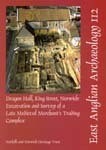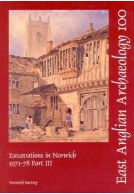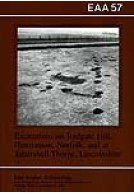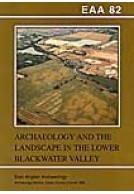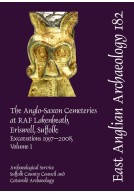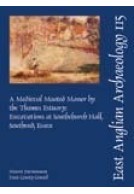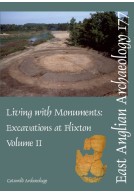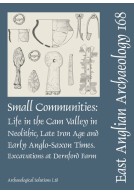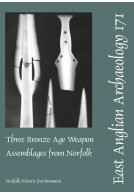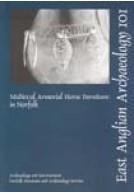Google Books previews are unavailable because you have chosen to turn off third party cookies for enhanced content. Visit our cookies page to review your cookie settings.
EAA 112: Dragon Hall, King Street, Norwich (Paperback)
Excavation and Survey of a Late Medieval Merchant's Training Complex
Imprint: East Anglian Archaeology
Series: East Anglian Archaeology Monograph
Illustrations: p, 25pls, 95figs;
ISBN: 9780951787816
Published: 31st December 2005
Script Academic & Professional
Series: East Anglian Archaeology Monograph
Illustrations: p, 25pls, 95figs;
ISBN: 9780951787816
Published: 31st December 2005
Script Academic & Professional
You'll be £24.00 closer to your next £10.00 credit when you purchase EAA 112: Dragon Hall, King Street, Norwich. What's this?
+£4.99 UK Delivery or free UK delivery if order is over £40
(click here for international delivery rates)
Need a currency converter? Check XE.com for live rates
(click here for international delivery rates)
Need a currency converter? Check XE.com for live rates
When a wealthy merchant built Dragon Hall in 1427 there had already been stone buildings on the site for 140 years, while the origins of settlement here lay in the period c. 9751025. Some of the buildings used by these first settlers were uncovered during the recent work at Dragon Hall, along with evidence for a small riverside community within an extra-mural Late Saxon suburb. Until the mid 13th century the site comprised three properties engaged in small-scale craft and industry, alongside horticulture and keeping livestock. At this time there appears to have been little interest in the commercial possibilities of the nearby river. By the early 1300s, however, the site had passed into the hands of the professional and ecclesiastical elite. The earliest known document relating to the site is a deed from 1289 which records a land transfer between the Abbey of Woburn and a Norwich clerk, John Page. Both used the site to build substantial stone houses. One reason for the abbeys interest in the property was probably its situation between a river flowing through the great medieval herring town of Yarmouth and a cardinal road through Norwich providing an ideal base from which to process fish and dispatch them inland. The early 14th-century remnants of Pages hall house survive today within Dragon Hall. The two holdings were conjoined during the second half of the 14th century, when the site was unified by the Midday or Clere families. In the late 1420s an ambitious construction programme commenced, probably by local merchant Robert Toppe, which resulted in Dragon Hall itself. The hall house was substantially rebuilt, and its service end embedded within the new trading hall. The first floor of the new hall provided the huge open space within which to store and display goods, and an office above the former service rooms from which to conduct business. The circulation of visitors was carefully regulated: divisions between public and private space are signalled by the quality of workmanship on show. A road which had linked the Midday/Clere complex to the street and river was now blocked by the warehouse and terminated beneath the first-floor showroom. After Toppes death the complex passed into the hands of local gentry until, in 1619, the great holding began to be sub-divided. Some of the buildings, including the abbey of Woburn's stone house, were demolished, and others rose in their place. A metalworking shop was eventually built on the site of one of the Woburn buildings and by the mid-18th century parts of the hall house were being used as an inn (The Three Merry Wherrymen, later the Old Barge Inn). By 1935 the site housed at least 34 individuals. As the population of the site rose so the quantity and variety of their discarded pottery increased. The collection of early modern ceramics from the site is currently without national parallel. Much of this came from the inns, as did four commemorative clay tobacco pipes stamped God Bless King George. Post-war King Street was briefly prosperous but the dwindling commercial use of the river initiated a decline in fortunes until by the early 1990s almost all commerce and industry had gone. Ongoing regeneration of the street reflects renewed interest in inner cities. At the point when Dragon Hall is once again looking forward to a sustainable future it is perhaps auspicious to be offering the definitive account of the sites first thousand years.
Customers who bought this title also bought...
Other titles in the series...
Other titles in East Anglian Archaeology...







